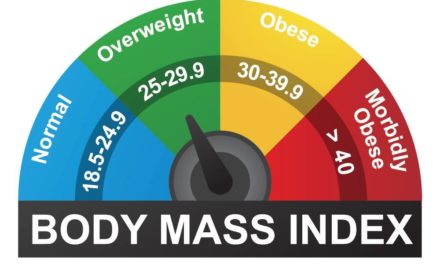Good morning everyone and welcome back to Part II of How to Schedule Your Workouts To Maximize Your Progress.
Last week we covered goal setting, time allotment, and the muscular super-compensation model.
Now, with the foundational principles in place, I’m going to jump right into my weekly workout prescriptions for my clients.
Today I’m going to outline the program recommendations I make for my clients whose primary goal is to build muscle and strength but will only be able to workout once or twice a week. Next week I’ll out line the recommendations I make for my clients who are able to exercise three or four times a week. And in the following week or weeks I’ll outline the recommendations I give my clients who are able to exercise five to seven times a week.
Now before I jump in let me lay out what I consider to be the golden rule when scheduling weekly workouts to maximize strength and muscular development.
To maximize your strength and muscle mass gains, you want to try to exercise a muscle about 48-96 hours after its last workout
Why?
Because, as we covered last week, the muscular super-compensation model shows us that in order to build strength and muscle mass we need to exercise our muscles from their post workout super compensated peak. And this peak occurs about 48-96 hours after our last workout.
Furthermore, the muscular super-compensation model shows us that if we don’t exercise our muscles within this time frame, our muscles’ will lose their new strength and size gains and return to their pre workout levels.
(*A very quick aside. Some athletes, specifically high level power lifters, will sometimes wait up to a full week before performing the same exercise again. But high level power lifters exercise in a very different manner than any of my clients. Hence why the workout frequency and rest guidelines I outline here may differ from those of an advanced power lifter.)
Okay, now that I’ve outlined the golden rule for scheduling your workouts, lets get into my specific recommendations.
1 Day A Week
If you will only be able to exercise one day a week, unfortunately, you won’t be exercising often enough to build any real muscle mass or develop any real strength.
Why?
Remember, in order to build strength and grow our muscles we need to work them about every 48-96 hours. If you only exercise once a week that means you are putting 168 hours between your workouts.
With 168 hours between workouts, when you go to exercise again you will have missed your muscle’s post workout super-compensated peak, and unfortunately, by this time your muscles will have returned to their pre workout capabilities.
The benefit of one day of exercise per week.
Now, while only exercising one day a week means you won’t really be able to make any significant muscle or strength gains, it does have one major benefit.
It helps you keep or establish the habit of going to the gym.
We are creatures of habit and if your long term goal is to exercise two or more times per week, keeping or developing the habit of going to the gym once a week can really help lay the foundation for additional workouts later on.
Why?
Because making the necessary changes to your schedule, your daily routines, and your lifestyles so that you can start going to the gym two or more times a week, when you haven’t been going at all, can be a difficult.
Often times planning to get to the gym just once a week enables us to manage those changes better. Then once we have altered our schedules, routines, and lifestyle to accommodate one workout a week, it is much easier to add in a second or even third workout a week than if we were starting from zero.
(I have used this tactic with many of my clients who were new totally new to exercise. I was upfront about the results they would see, but we used a one workout a week schedule to get them in a comfortable rhythm and then after a month or two, relatively painlessly up their workouts per week.)
2 Days A Week.
If you are able to exercise two days a week you now have the ability to schedule your workouts such that you can exercise your muscles every 48-96 hours. And this means you can start to build muscle and strength.
Now, being candid, unless you are a complete beginner, you should not expect long term substantial muscle mass and strength gains only working out twice a week.
Why?
Because once you’ve passed the beginner stage, which normally occurs after about 3 months or so of training, your body is going to need to lift more volume (volume being the total amount of weight you lift per workout) to continue to grow.
So if your goal is to build substantial muscle mass and strength, long term you need to plan to incorporate additional workouts into your weekly workout routine.
However, if your goals are more moderate, you can see solid results with two days of exercise a week.
Here are the recommendations I give my clients who are able to exercise twice a week.
Scheduling.
If you’re working out twice a week you’ll want to schedule your workouts every two to three days so there are 72 hours and 96 hours respectively between your workouts.
This could mean working out on Mondays and Thursdays. Or Tuesdays and Fridays. Or Wednesdays and Saturdays. Or Thursdays and Sundays.
This type of schedule is the best for taking advantage of your post workout muscular super-compensation 48-96 hour peak.
If you were to workout, lets say, Mondays and Wednesdays, or Tuesdays and Thursdays, you would have 48 hours between the first and second workout, which is fine. But you would then have 120 hours between your second workout of the week and your first workout of the next week. And that is too long of a layoff.
Exercise selection:
If you are working out two days a week you need to do a total body workout routine both days. Do not split your workouts into upper body and lower body days or, even worse, try to split them up into body parts.
Why?
Because, as we’ve now established you need to exercise your muscles twice a week, once about every 48-96 hours, to maximize their development.
So in order to follow this golden rule, you have to do a total body routine each day you workout to ensure you hit each muscle group you want to develop every 48-96 hours.
Think about it. If you did a lower body workout once a week, and an upper body workout once a week, you would only be hitting each muscle group once a week, with 168 hours between each workout for each muscle group. And that is exactly what we are trying to avoid!
Okay everyone, that covers the recommendations I give my clients who are trying to build muscle and strength who can only exercise once or twice a week.
Next week I’ll cover my recommendations for my clients who can exercise three or four times a week.
And as always,
To our health.
Zach





